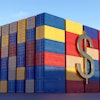NUREMBERG, Germany (AP) -- The hottest "green" toy in Germany isn't made of organic or recycled materials. That's so 2010. This one has a solar panel and only runs if kids remember to insert bright red "energy stones" that power the rest of the space station.
Germany, a pioneer in many renewable energy initiatives, is also at the forefront of creating environment-friendly toys aimed at making kids think about where energy comes from and how much of it they can use, raising awareness through play.
A panoply of high-tech green toys are on display at this year's Nuremberg toy fair, which runs through Sunday. Among them, hydroelectric-powered toy cars, and doll houses with wind turbines and rainwater catchers.
The bright green "Future Planet" space station features an inner atrium with a fan that is powered by a functioning solar cell. Its aim is to get kids to use their imagination about how energy will be created in the future.
Makers and retailers believe such toys will play an increasingly important role in their future -- and that of our kids.
"Energy is the question of the future and we are definitely thinking about this as we move ahead," said Judith Schweinitz, a spokeswoman for Playmobil, maker of the solar panel-fitted space station. "It is increasingly being brought into our play concept."
Green toys -- which range from those made of sustainable materials to ones like the space station that just raise environmental awareness -- make up only a sliver of the nearly $84 billion international toy market, but their share is growing, studies indicate. Environmental research firm Earthsense, based in Syracuse, New York, predicts that green toys will account for about $1 billion, or 5 percent, of U.S. toy sales in the next five years.
Stacy Lu, a 46-year-old mother of twins from Allendale, New Jersey, is a self-described "rabidly eco-friendly" consumer who has researched toxins in the household -- and is drawn to toys that make kids think about the planet's future.
"In my mind, just knowing that there are alternatives to energy sources that involve environmentally disastrous digging and drilling is important," said Lu, who recently bought her godson an alternative-energy electrical kit as a gift.
Eco-friendly toys were given a special section at the New York toy fair last year and organizers of the Nuremberg fair, Germany's leading international gathering of toy makers and sellers, also highlighted green toys.
Robert von Goeben, co-founder of San Francisco-based Green Toys Inc., started making toys and other children's products from recycled milk jugs in 2008. Since then, he said, sales have exploded, recording 80 percent growth last year as demand for the toymaker's bright tugboats, pastel tea sets and colorful trucks surged.
"I think that the success of our company, shows that there is clearly a wide segment of the population that will pay a little more for environmentally friendly toys," said von Goeben, whose toys cost roughly a third more than comparable playthings made from conventional materials.
But Wild Toys, makers of animal figures and exploration sets, said their experience had shown otherwise.
The company, which sells mainly to zoos and museum shops, jumped on the green bandwagon two years ago, bringing out a line of purely organic plush animals, even making sure the cotton for the stuffing was grown with organic fertilizer. The toys cost about 25 percent more than their conventional counterparts.
"They are still sitting in our warehouse," said Wild Toys spokesman Valdemar Barde, adding that consumers are not yet ready to swallow the cost of going green in the toy box.
"We are still in that phase on toys that consumers say, 'Yes, we want to be green, but no, we don't want to pay for it."
But according to a survey conducted by the Nuremberg toy fair, roughly a third of consumers in Germany said they would pay 10 to 20 percent more for playthings made from sustainable products, also with an eye to their longevity.
"Sustainable toys are also high-quality toys, meaning they last longer and then we also have the aspect that it is worth it to invest a few more euros," said Rainer Weisskirch spokesman for Germany's TUV quality control organization.
Von Goeben noted that safety concerns play a role and that recent scandals over cadmium in many Chinese-made toys and BPAs in conventional plastics have made parents more concerned about what goes into their kids' toys.
"No longer can we have this anonymous plastic thing from someplace and give it to the child. Parents are smart and they want information about what's in the product. That's what's really driving the market."
Germany, a pioneer in many renewable energy initiatives, is also at the forefront of creating environment-friendly toys aimed at making kids think about where energy comes from and how much of it they can use, raising awareness through play.
A panoply of high-tech green toys are on display at this year's Nuremberg toy fair, which runs through Sunday. Among them, hydroelectric-powered toy cars, and doll houses with wind turbines and rainwater catchers.
The bright green "Future Planet" space station features an inner atrium with a fan that is powered by a functioning solar cell. Its aim is to get kids to use their imagination about how energy will be created in the future.
Makers and retailers believe such toys will play an increasingly important role in their future -- and that of our kids.
"Energy is the question of the future and we are definitely thinking about this as we move ahead," said Judith Schweinitz, a spokeswoman for Playmobil, maker of the solar panel-fitted space station. "It is increasingly being brought into our play concept."
Green toys -- which range from those made of sustainable materials to ones like the space station that just raise environmental awareness -- make up only a sliver of the nearly $84 billion international toy market, but their share is growing, studies indicate. Environmental research firm Earthsense, based in Syracuse, New York, predicts that green toys will account for about $1 billion, or 5 percent, of U.S. toy sales in the next five years.
Stacy Lu, a 46-year-old mother of twins from Allendale, New Jersey, is a self-described "rabidly eco-friendly" consumer who has researched toxins in the household -- and is drawn to toys that make kids think about the planet's future.
"In my mind, just knowing that there are alternatives to energy sources that involve environmentally disastrous digging and drilling is important," said Lu, who recently bought her godson an alternative-energy electrical kit as a gift.
Eco-friendly toys were given a special section at the New York toy fair last year and organizers of the Nuremberg fair, Germany's leading international gathering of toy makers and sellers, also highlighted green toys.
Robert von Goeben, co-founder of San Francisco-based Green Toys Inc., started making toys and other children's products from recycled milk jugs in 2008. Since then, he said, sales have exploded, recording 80 percent growth last year as demand for the toymaker's bright tugboats, pastel tea sets and colorful trucks surged.
"I think that the success of our company, shows that there is clearly a wide segment of the population that will pay a little more for environmentally friendly toys," said von Goeben, whose toys cost roughly a third more than comparable playthings made from conventional materials.
But Wild Toys, makers of animal figures and exploration sets, said their experience had shown otherwise.
The company, which sells mainly to zoos and museum shops, jumped on the green bandwagon two years ago, bringing out a line of purely organic plush animals, even making sure the cotton for the stuffing was grown with organic fertilizer. The toys cost about 25 percent more than their conventional counterparts.
"They are still sitting in our warehouse," said Wild Toys spokesman Valdemar Barde, adding that consumers are not yet ready to swallow the cost of going green in the toy box.
"We are still in that phase on toys that consumers say, 'Yes, we want to be green, but no, we don't want to pay for it."
But according to a survey conducted by the Nuremberg toy fair, roughly a third of consumers in Germany said they would pay 10 to 20 percent more for playthings made from sustainable products, also with an eye to their longevity.
"Sustainable toys are also high-quality toys, meaning they last longer and then we also have the aspect that it is worth it to invest a few more euros," said Rainer Weisskirch spokesman for Germany's TUV quality control organization.
Von Goeben noted that safety concerns play a role and that recent scandals over cadmium in many Chinese-made toys and BPAs in conventional plastics have made parents more concerned about what goes into their kids' toys.
"No longer can we have this anonymous plastic thing from someplace and give it to the child. Parents are smart and they want information about what's in the product. That's what's really driving the market."


















